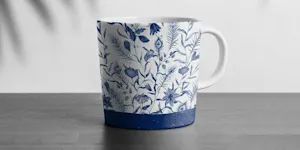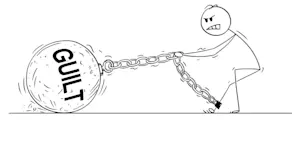What Makes This Word Tick
"Quaint" is a delightful word, often evoking a sense of the charming and old-fashioned. It's frequently used to describe something that has an attractive uniqueness or charming oddity, perhaps reminiscent of a simpler time. There's nothing quite like stumbling upon a quaint village or a quaint little teashop to make you feel like you've stepped into a storybook from yesteryear.
If Quaint Were a Person…
Imagine quaint as a lovely, elderly librarian who wears glasses perched on the edge of her nose. She's dressed in vintage attire and has a charming way of telling stories about the "good old days." Her home is filled with lace doilies, beloved antiques, and she always offers you a cup of tea, served from a delicate porcelain set.
How This Word Has Changed Over Time
Originally derived from the Old French word "cointe," meaning cunning or proud, "quaint" has mellowed over the centuries. In its journey from meaning skillfully made or elegant, it now more commonly describes things that are endearingly old or unusual. The evolution reflects shifting societal values from admiration of skillful artistry to a romanticized view of the past.
Old Sayings and Proverbs That Use Quaint
Though not often found in classic proverbs, "quaint" might remind one of sayings like "everything old is new again" or "they don't make them like they used to," capturing the sentiment of charm and nostalgia associated with the past.
Surprising Facts About Quaint
Did you know that quaint once implied elegance and finery, somewhat akin to how we might use "fanciful" today? Over time, it has shifted towards its current association with the picturesque and slightly eccentric. It's a wonderful example of how language can transform alongside cultural shifts.
Out and About With This Word
Use "quaint" to describe a scene or place that feels like a trip back in time — maybe a cobblestone alley in a historic town or a vintage diner with a jukebox. This word is perfect for travel blogs, nostalgic stories, or when you're sharing photos of those hidden places that somehow escaped the rush of modernity.
Pop Culture Moments Where Quaint Was Used
"Quaint" often appears in movies and TV shows when characters find themselves in charming, offbeat places. Think of the film "The Holiday," where a character swaps a bustling city life for a stay in a quaint English cottage. Such moments emphasize the contrast between the chaotic contemporary world and serene, nostalgic escapes.
The Word in Literature
Quaint finds a home in literary descriptions that seek to evoke a vivid sense of place, especially in genres like classic literature, historical fiction, or even certain cozy mysteries. It's a word that authors use when they want you to smell the mustiness of an old bookshop or hear the creak of a wooden floor in a centuries-old house.
Moments in History with Quaint
Imagine the Victorian era, a time ripe for the word "quaint." It was a period when technology began its rapid ascent, yet people yearned for romanticized pasts. The spirit of the word could capture the era's quaint enthusiasm for discovery while preserving proper decorum and tradition.
This Word Around the World
In French, where the word has its origins, "quaint" can translate to "pittoresque" or "charmant," reflecting its visual and atmospheric charm. It's fascinating how the word's cozy connotation transcends languages, often painting the same picturesque picture regardless of the tongue in which it's spoken.
Where Does It Come From?
"Quaint" comes from the Old French "cointe," meaning skilled or pretty, and dates back to the 13th century. As with many English words, its history is a cross-continental journey from Latin to French, and finally to English, adapting its meaning along the way.
How People Misuse This Word
Some folks might use "quaint" to describe anything merely old-fashioned, but the true charm of the word lies in its connotation of being uniquely charming or picturesquely odd. It's not just about age — it's about the personality of the place or thing, delicately balanced between simplicity and eccentricity.
Words It’s Often Confused With
Vintage: While both words connote age, "vintage" is more about the era and quality rather than the charming atmosphere "quaint" implies.
Retro: This focuses on style and design from the recent past, lacking the timeless charisma conveyed by "quaint."
Antique: Mainly refers to something old and valuable, whereas "quaint" emphasizes charming peculiarity.
Additional Synonyms and Antonyms
Synonyms for "quaint" include charming, picturesque, and whimsical. As for antonyms, think modern, contemporary, or sleek — quite the opposite end of the charm spectrum.
Want to Try It Out in a Sentence?
How about: "On our trip, we stayed in a quaint little inn, with floral wallpaper and a creaky wooden staircase, which felt straight out of an antique fairy tale."
















